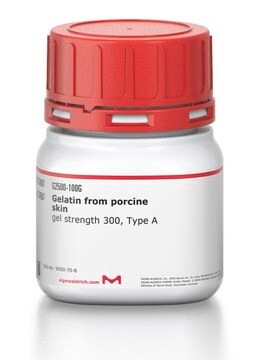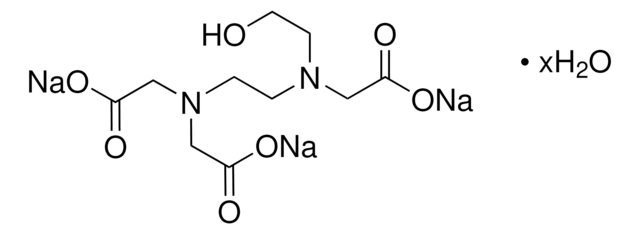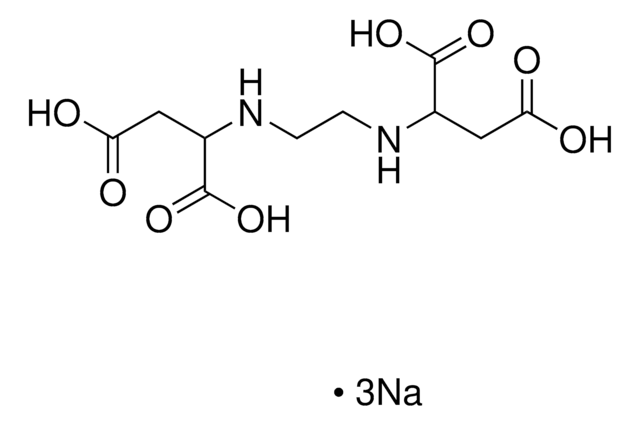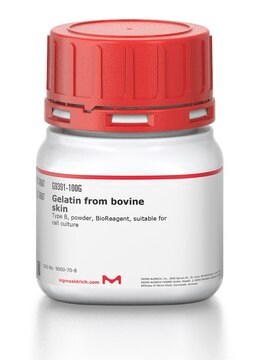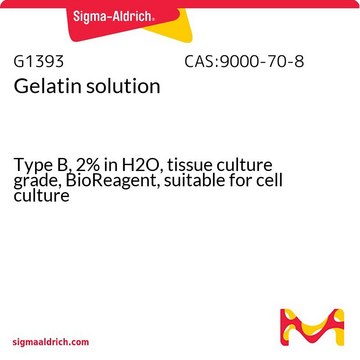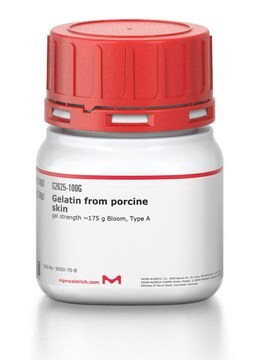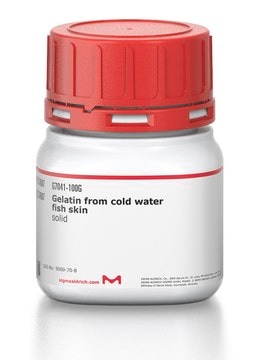H8126
N-(2-Hydroxyethyl)ethylenediamine-N,N′,N′-triacetic acid
~98%
Synonym(s):
N-Carboxymethyl-N′-(2-hydroxyethyl)-N,N′-ethylenediglycine, HEDTA, HEEDTA
About This Item
Recommended Products
Assay
~98%
Quality Level
form
powder
mp
212 °C (dec.) (lit.)
SMILES string
OCCN(CCN(CC(O)=O)CC(O)=O)CC(O)=O
InChI
1S/C10H18N2O7/c13-4-3-11(5-8(14)15)1-2-12(6-9(16)17)7-10(18)19/h13H,1-7H2,(H,14,15)(H,16,17)(H,18,19)
InChI key
URDCARMUOSMFFI-UHFFFAOYSA-N
Looking for similar products? Visit Product Comparison Guide
Application
Signal Word
Danger
Hazard Statements
Precautionary Statements
Hazard Classifications
Acute Tox. 4 Oral - Eye Dam. 1 - Skin Irrit. 2
Storage Class Code
11 - Combustible Solids
WGK
WGK 2
Flash Point(F)
Not applicable
Flash Point(C)
Not applicable
Personal Protective Equipment
Choose from one of the most recent versions:
Already Own This Product?
Find documentation for the products that you have recently purchased in the Document Library.
Customers Also Viewed
Global Trade Item Number
| SKU | GTIN |
|---|---|
| H8126-1KG | 4061833805916 |
| H8126-500G | 4061835557172 |
| H8126-5G | |
| H8126-100G | 4061833805831 |
Our team of scientists has experience in all areas of research including Life Science, Material Science, Chemical Synthesis, Chromatography, Analytical and many others.
Contact Technical Service
